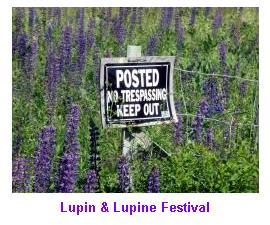Whether you are in a youth group, school club, a band or a service charity, you need funds to support your regular activities or to organize some special event. If you are unable to shell out such expenses, then fundraising becomes necessary.
Always a lot of work, raising money can be fun though, if done properly. From the simple and easy, to adventurous and quirky, there are plenty of ideas to help your group raise money. In our view there are 6 basic ways:
Dues: If your needs are small, dues are the way to go. In essence, those who play, pay. You can always offer 'grants' to individuals/families who are impoverished.
Soliciting Donations: Today, it "ain't" what it used to be! You can still call around, or ask everyone you know, or, you can do crowd sourcing. (For crowd funding see our
article here.) If your organization is on the larger side and you are approaching a milestone anniversary or event, consider a planned giving campaign, but be advised: you should start planning 5 years out - call a professional fundraiser first: several are listed online.
Auction or Raffle: Ask your friends and family to donate items, which you then sell at auction. These can be anything from everyday use items to

souvenirs and antiques. Folks without items can always donate services: lawn mowing, gardening, painting, etc. If possible, get the venue donated, and the auctioneer's services donated, then there is virtually no overhead and all the proceeds will be your profit.
Direct Sales: Bakes sales are the most common example but the ideas are legion. Everything from pizza, cookie dough, kitchen gadgets and discount coupons are available. Restaurants will sometimes donate proceeds (or a percentage thereof) from a specific time and date's sales, your group just spreads the word. You can also sell things like utilities -
charming consumers to switch to XYZ's Mastercard or electric company can earn your group residuals for years. Sales of any kind are often easier if you piggyback on another event (bake sales at farmer's markets or annual festivals, etc.). [See
justfundraising.com or
easy-fundraising-ideas.com.]
Corporate Sponsorship: Over the last several years this money has been harder to find, but it's still available. Corporations like to sponsor things that get them good press. The reach and public profile (awareness) of your group is a strong predictor of sponsorship success potential. Keep in mind that most corporations are already being tapped. They also usually only consider requests a few times a year ~ they determine their sponsorship budget, and the multiplicity of requests, and fund the ones that they consider most beneficial to their mission and investment. Ask early and be sure to include multiple high-profile strategies to get their name out as a sponsor, like inclusion on event posters, press releases, etc. Many corporations also like to sponsor events that have an employee connection. Does anyone in your group have a direct or indirect connection to a medium or larger company? Check with your personnel office or corporate management to discover their grant policies. [See
How to Approach Corporate Sponsors and
How to Attract Corporate Sponsors.]
Grants: Grants are a pipeline all their own. There are over 3 MILLION grants available in the USA from foundations and charitable trusts, etc. Almost always they require a specific written proposal, documenting the need for the grant, the group's revenue/budget/spending and other particulars. Many small groups are intimidated by the process but don't be dissuaded. For the most part anyone with a bachelor's degree has written tougher term papers. Gather the data you can, collect better data next year, and keep trying. Have patience and persistence, and the rewards will be there.
Most focus their giving in their particular areas of interest: agricultural development, school playgrounds, library expansion, summer camp tuition, etc. No matter your need, someone somewhere probably makes grants for that. Like corporations, grantors usually receive more applications than they can fund. Unlike corporations, foundations usually care more about the good you are doing, and far less about the glory or any benefit they may receive.
There are 2 keys to success with grants: 1) getting started and 2) persistence. Sending out numerous grant applications over time will yield results. If your application addresses the foundation's 'sweet spot', i.e. the things they like to fund, your persistence will often be rewarded, but alas, often not until the 2nd, 3rd, or 4th request. And clearly note: they generally don't like to fund day-to-day operations: they view that as your job. They do, however, like to fund quality improvements, expansions of service, or strategies that will help your stability/financial growth in the future (additional training, public outreach, development director wages, new service van, facilities improvement, etc.) If your group has a specific goal, patience, and someone who is a quality writer, this can work for you. You can search for foundations, companies at
https://fconline.foundationcenter.org/ but note, it's a
fee service. [See
Writing a Grant Application for Funding and
How do I write a grant proposal?]
Many groups are intimidated by the process but don't be dissuaded. For the most part anyone with a bachelor's degree has written tougher term papers. Gather the data you can, collect better data next year, and keep trying. Have patience and persistence, and the rewards will be there.
Events: Many groups get all their funding from a single large annual event, and any group can do one. Single events work best if there is an identified specific need or cause (new town ambulance, disaster relief, etc.)
Annual events tend to grow over time. Themed, done small and well, and associated with a particular date or holiday (always the 2nd Saturday in March, etc.), people will remember it and soon you are off and running. The dilemma is to be patient. While your event may be a barnburner right out of the gate, chances are it won't be a significant money maker until 2-3-4 years down the road. Success follows success. Once you have done the first few years' hard work, finding sponsors will become MUCH easier. Crowds will be larger, and there'll be more vendors, etc. and then you'll really have something.
My BEST advice, is to think of fundraising as a several year strategy, be patient, and plan accordingly.
Lastly: The
New Hampshire Charitable Foundation helps many organizations reach their goals and distributes more than 3,000 grants annually. For help or ideas give them a call at 603-225-6641.
►MORE FUNDRAISING HELP
Do-It-Yourself Fundraising Ideas
Fundraising Ideas
17 Fundraising Ideas to Raise More Money
200 Inventive Fundraising Ideas
About the Author
George C. Jobel does web development and SEO consulting and has been helping clients develop successful
online & multimedia marketing since 1995. George has served on various non-profit boards of directors for over 10 years. You can reach him at his
web site, or 603.491.4340.















 1
1 2
2 3
3 4
4 5
5 souvenirs and antiques. Folks without items can always donate services: lawn mowing, gardening, painting, etc. If possible, get the venue donated, and the auctioneer's services donated, then there is virtually no overhead and all the proceeds will be your profit.
souvenirs and antiques. Folks without items can always donate services: lawn mowing, gardening, painting, etc. If possible, get the venue donated, and the auctioneer's services donated, then there is virtually no overhead and all the proceeds will be your profit.






